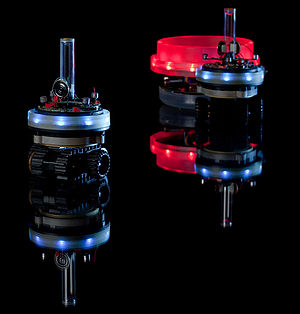There are over one million household robots, and 1.1 million industrial robots, operating worldwide
They learn to speak, write, and do arithmetic. They have a phenomenal memory. If one read them the Encyclopedia Britannica they could repeat everything back in order, but they never think up anything original. They’d make fine university professors.
My first experience with robots was through popular culture and literature when I was a little girl. I was fascinated with the first computers, space and robots: Star wars and R2D2 (first indication of my geekiness), watching many times and dreaming of Blade runner, reading short stories by I.Asimov. Later on, during college, courses on information systems, cybernetics caught my attention, from the cybernetic communication models to cybernetic organisms being described as cyborgs and the larger networks of communication. I was interested in techno-science and feminist-cyborg studies of Donna Haraway and S.Turkle’scyber-analysis of the robots sociability, her studies on intimate bonds we form with our artifacts (robots and computers), and how they shape who we are. Finally, with the Internet expansion my interests switched to Information and communication technologies and Computer-Mediated Communication, networked and learning systems.
Then, last December at TED Women I’ve reached a “robotic moment” watching a roboticist from MIT, Cynthia Breazeal, who talked about robots in communication technologies: mobile, expressive, performing collaborative tasks, and socially engaging, something that interconnected with my internet studies and research on communication in different contexts.
People interact with robots identically as with their computers. They trust in them and they are emotionally engaged. To find out more about the possibilities of robots and their proliferation in society (in learning, medicine, space, everyday life) as well as the European robotic scene, I was talking with researchers in Cognitive Robotics Sasa Bodoroza and his colleague Guido Schillaci from the Cognitive Robotics Department at the University of Humboldt in Berlin.
Read more . . .
Bookmark this page for “cognitive robotics” and check back regularly as these articles update on a very frequent basis. The view is set to “news”. Try clicking on “video” and “2” for more articles.








